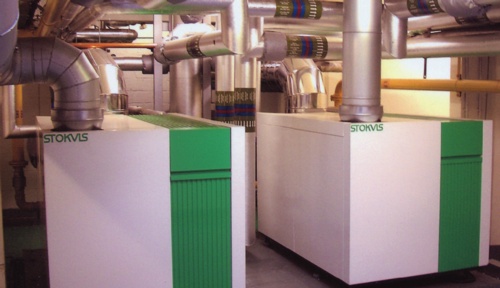Boiler manufacturers take controls to heart
Efficient boilers and heating systems are the result of a combination of technologies and controls techniques. Are you familiar with all the features explained by Paul Sands?
Technological advances have increased the efficiency of commercial boilers to the extent that established, well-proven technology ensures high efficiency and reliable performance.
However that does not mean the industry is resting on its laurels, because new developments continue to boost the energy efficiency and overall effectiveness of heating systems.
Great strides are being taken in boiler controls because the better the control the greater the energy efficiency, the higher the fuel savings and the smaller the environmental costs of consumption.
For example, modern premix boilers can incorporate a temperature sensor linked to a temperature controller which, in turn, operates a frequency inverter which manages the speed of the fan. Gas is controlled by analysing the varying pressure created by the fan so that, for instance, a higher pressure indicates a higher requirement for heat which opens up a pressure-controlled gas valve. This allows full modulation of the boiler, with all the energy efficiency benefits that result.
It makes sound environmental sense to modulate the gas and air from the primary heat source (the boiler) in accordance with demand, because optimising the ratio of gas to air saves energy. If the water content of the boiler is also minimised, the user will also benefit from tight control of heat output, minimising standing losses.
Developments have also taken place in system controls such as weather compensation, which is designed to vary the boiler’s flow temperature according to the outdoor temperature, thus minimising the amount of gas the boiler consumes.
With condensing boilers now the norm, the most efficient heating systems are designed for a greater difference between flow and return temperatures, so that the return water is at a lower temperature, which offers greater condensation opportunities and, therefore, higher boiler efficiencies.
More recently, condensing technology has meant that consultants have increasingly tried to design in lower flow and return temperatures to maintain condensing mode. However there is scope to apply more attention to system design in order to ensure the lowest possible flow and higher temperature drops on the system.

The onset of renewable technologies such as solar energy, bio-diesel, biomass boilers, heat pumps etc. has meant that more conventional high-efficiency condensing boilers are often used for top-up energy.
If renewable sources are starting to act, in effect, as the lead boilers, it follows that the boilers supporting them will get smaller. Indeed, as more commercial projects become renewable-based, the trend towards smaller boiler plant will accelerate. This, combined with further legislation that will increase the thermal properties of buildings, will result in less heat loss, which itself adds to the impetus for smaller boilers.
Another increasingly common sight in commercial settings is modular boilers packaged on a frame. These integrate system controls, manifolds and low-loss headers etc. and add to flexibility of design.
Factory-produced packaged boiler systems and controls make it easier for consultants looking for efficiency in the system rather than just in the boiler. This is because they are able to obtain from the manufacturer ‘the points’ in terms of ratings for overall system efficiency. This in turn allows them to specify a complete and coherent system of boilers and controls in one easily rateable package — taking away the headache of specification.
Factory-produced packaged boiler systems improve safety on site because there are fewer trades are on site for less time, and quality and reliability are guaranteed because the packages are produced in controlled factory conditions.
Paul Sands is with Stokvis Energy Systems.







